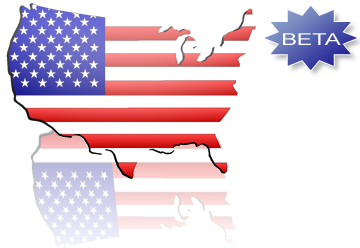America, the greatest country in the world — for those who can afford it
To be the wealthiest nation on the planet and have the highest infant mortality rate among developed nations is stunningly shameful
We spend double, and even triple per capita on health care what other developed nations are spending. Our babies have the least chance of survival in their first year compared to babies in 13 other developed nations. In fact, for the first 5 years of their lives our children are more likely to die than in any of those other developed countries. Our Mothers are more likely to die during child birth than in any except for France, with whom we’re tied. Apparently, spending more doesn’t equate to better care for Mother and child?
At the other end of the spectrum, our life expectancy is the lowest–trailing by up to 4.4 years–and the average American will spend 12.1% of their life in poor health, while the average among nearly all other developed nations is at or below 10.5% total. They’re living longer and healthier everywhere else!
Politicians have been saying it, and maybe that’s part of the problem–I too tend to dismiss or be skeptical of most of what I hear when their lips are moving–but I think the time is right for we the people to have a candid discussion on a very serious issue; the Health Care system in America is broken.
We’re paying more and getting less, how un-American is that? Why hasn’t the free market prevented this from happening? Simple, because health care in the U.S. isn’t a free market, it’s a very closed-door club that only those with the highest paid lobbyists gain memberships to. There is no free market in place with health care, nor can there be. For obvious reasons, health care and providers must be regulated to protect public safety. So, it’s almost a catch-22. The one mechanism that could protect us financially and spawn the competition which typically drives advances and ingenuity–the free market–is the one thing we can’t allow to rule over our health care.
I don’t have all the answers, I’m not that great a thinker, but I have an idea that I’ve pieced together from other ideas and proposals I’ve heard on this subject over the years, and which seems to address the majority of requirements and concerns that I know of for a National Health Care system that could be acceptable to most Americans as it provides affordable care for all who want it, but isn’t required nor obligated and burdening to those who don’t.
I suggest that a government run health care system could–and should–be operated on a similar organizational structure to the Postal service, meaning very little, if any at all, taxpayer dollars would be needed to support it.
Here’s why that could work, at least from a general financial perspective, to the benefit of all citizens while still protecting the freedom and liberties of those who can afford it to seek out private/special care:
With it’s vast size and purchasing leverage, our government would be able to negotiate prices with suppliers (from hardware equipment to medications) that would rival the cheap prices places like Canada already pay for the same items from the same manufacturers. That produces a savings, which is then passed along to the citizens.
Sure, we’d still have to handle health care costs for ourselves. Be it in the form of opt-in, tax-based insurance policies or as I would prefer to see, medical credit accounts that can be pre-funded or post-financed for emergency care. Where we each pay for what we use and need, but at the government’s cost rather than the current out of control pricing that’s in place now, and preventing millions of Americans from accessing basic medical care they require every day.
By legislating it in a manner similar to the Postal system, where it can not carry a running a profit from year to year, Congress could keep pricing at the costs levels.
Vanity medicine would also be as much of an option as it is now, and assist in covering the costs of necessary medicine for the poorest among us to avoid anyone being denied access to basic health care. Much like the Postal system provides free mailing services to certain groups and not for profits, and covers those free services with the small profit margins on their high end services like insurance, registered mail and etc.
And like today, where you have options other than the Postal service for your mailing and package deliveries, you would still have those options for your medicine too.
The obvious question for such a system I think, is why would Doctors or Nurses work for the government system if they could still go into the private sector with higher profits and earnings to be had? The answer is simple, there’d be a limited demand for those private services, and a far greater demand for the government’s. If you want to practice medicine, that’s where the majority of jobs would be–based on the laws of supply and demand–and this would also lead to a standardized salary range for Doctors and Nurses that would help to reduce costs to the citizens.
It would also put an end to Doctors prescribing unnecessary medications to patients (while trying to win a golf trip from the pharmaceutical company for the most prescriptions written for their drug this month) since it would be professional buyers handling purchasing negotiations and not each Doctor/office/hospital individually, which so far hasn’t worked to benefit the patients at all under the current design–though has led to some great golfing vacation tales being spun around Yacht clubs coast to coast.
I can see the argument being made, as it already falsely is with the Postal service–that it would become a government monopoly. That’s simply not true. You can send letters by Fed-Ex if you want right now. You can use UPS, or a number of other large and small outfits that exist. These all even offer a superior basic service, in that your mailing will be hand delivered rather than placed in a box, but you just have to be willing to pay their higher rates for that service. That’s known as the free market at work and couldn’t be more American in my opinion.
What the government does with mail, and could do with medicine, is provide services in such a massive bulk scale that it can provide them cheaper. It doesn’t prevent others from also providing the services though, so it’s not a monopoly.
Certainly this isn’t an air-tight Utopian plan I’ve described, I told you I’m not that great a thinker… but I believe something along these lines would fill the needs and desires of those who want to ensure basic health care services to all Americans, while also protecting the rights of those who wish to maintain private health care services as well.
The key here, in my opinion, is to develop a system that is strictly voluntary to all, but also ensures that nobody will slip through the cracks and be denied basic medical attentions who wants them.
That’s why I think the Postal service model is nearly perfect for such a system. It isn’t mandatory to use, doesn’t place any unfair burdens on individuals or businesses; and with a practical, comprehensive heath care credit account system that allowed for pre-paying as well as post-financing would be available and affordable to all.
So, would such a system ultimately provide good care to citizens? This seems to be the loudest argument I’ve heard against a national health care system, that the “quality of care” would suffer. Well, when you look at the numbers I provided at the beginning of this I’m not sure how the “quality of care” could be any worse for us?–But, my real reply is that in nearly all of those other developed nations where people are spending so much less than us on health care, and living longer, healthier lives… they have some form of national health care systems in place. An accessible and affordable national health care system would create hard, market-based competition for providers who remained in the private sector–and competition drives innovation. By any practical standard of reasoning we can only assume that the overall “quality of care” in America would benefit and greatly improve from this.


 buxtohispano.com
buxtohispano.com 


































4 Responses to “America, the greatest country in the world — for those who can afford it”
By Anonymous | Reply to article
Why would anyone want a program where the government would tell you what doctor you could see and when you could see them? Does anybody really want to hand over that control to politicians?
By I.M. Kilroy | Reply to article
Hey Anonymous, doesn’t most people’s HMO already do that?
I’m not sure that shifting the control from bean counters who only care about the bottom line to politicians who at least care about keeping you around to vote in their next election cycle is all that bad of an idea.
By Scott Bannon | Reply to article
I’m glad to see this piece has sparked some discussion, and I think it’s only prudent to thoroughly question any program that our government is/would be involved in.
I’m not sure though, that I can see there being a problem with people being told what Doctors they could go to or when they could see them.
Does the government tell you what Post Office you can send your mail from? Or buy stamps at? No, they have offices all over the country and are ready to accommodate you whenever, and where ever you may walk through the door.
If the national health care system were structured similar to the Postal service, I can’t see why that wouldn’t be true with health care as well.
Honestly, if anything, I think a system like this would actually give people more choices of Doctors they could see. I live in a medium size city, and my current health insurance limits me to a single office with 6 Doctors to pick from for all non-emergency care.
A city this size under a national health care system would have to have a dozen or more offices, each with 5 or more Doctors in them. It seems to me I’d have my pick from literally 5 dozen or more Doctors to use at that point, rather than the 6 I have now.
Statistics link which should have been included in the article:
American Health Care Statistics
By Edward Saunders | Reply to article
I love the conservatives,who don’t believe in any government involvement in health care.They say that private industry does a better job,or that National Health Care will increase waiting lines for surgeries.
What a bunch of bull.
I’ve lived in England and have experience with socialized health care.It beats our system, hands down.
No one in England has to claim personal bankruptcy because of catastrophic illness.Can you say the same for here in the U.S.?
The argument about having to wait for surgeries is legit,but I put it to you,that if people are willing to go to a doctor earlier because it’s free,preventitive care will cut way down on major surgeries and illnesses.
Not to mention the U.S. rate of women dying from pregnancy complications,which are 4 times higher that any other,but one( France)who we’re tied with,of any developed nation.
What a trvaesty,that the richest country in the world can’t provide basic health care to our neediest citizens.We should hide our heads in shame.